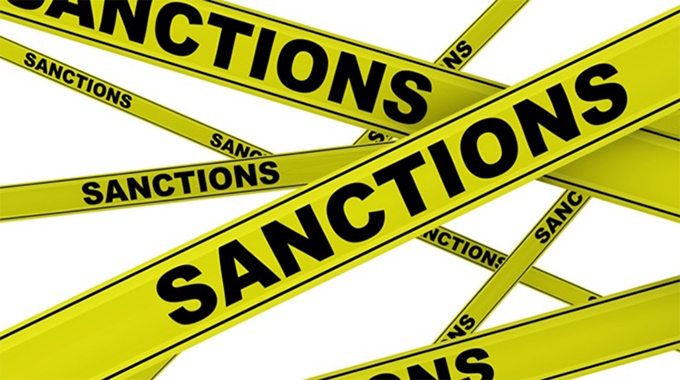US sanctions move a small symbolic change

THE ending of the American declaration of national emergency regarding Zimbabwe on Monday was a very modest and largely symbolic gesture, especially as sanctions against 11 individuals, including President Mnangagwa and three businesses, were immediately re-imposed through a different law by the United States Department of Treasury.
But symbolism does matter, even if there is little in the way of practical change, since it does reflect a potential, if not very large, opening up. Much of that switch is the removal of emergency status on anti-Zimbabwean measures and the use of a more general law, the Global Magnitsky Human Rights Accountability Act administered by the Department of Treasury’s Office of Foreign Assets Control.
We also need to remember that Senator Joseph Biden of Delaware was one of the four sponsors of the Zimbabwe Democracy and Economic Recovery Act of 2001 in the American Congress, the law that imposed sanctions, so even a shift in sanctions to another law is a positive change and helps to depersonalise the sanctions decisions.
But the most important factor in the US sanctions against Zimbabwe has nothing to do with sanctions against a list of individuals, regardless of the law that is involved. We cannot imagine President Mnangagwa, or anyone else on the American list of now just 11 people, has ever wanted to open a bank account in America or buy property, company shares or other assets there. These personalised sanctions are simply an expression of distaste.
If the only sanctions against Zimbabwe were these measures, described as targeted by those who try and justify imposing them, Zimbabwe would not be affected and not be worried. They would simply allow the American Government to express its dislike of senior members of the Zimbabwean Government without doing any harm.
It is the other sanctions that have created the harm and which continue to create the harm, the financial sanctions. Here ZIDERA is specific, that the American delegates to the multinational lending institutions, from the World Bank and the International Monetary Fund downwards, are not permitted to vote for measures that could benefit Zimbabwe until, for all practical purposes, there has been a change of Government, although it is expressed less belligerently than that.
The same law also encourages the American Government to use these agencies to advance and help Zimbabwe once the necessary change has taken place. The US has the sort of muscle where while not able to impose its will on the multinational agencies, it is the largest shareholder and has the largest block of votes. The internal laws it uses makes it clear that the Government should seek support from Europe, Britain and Canada, and that certainly assembles a voting majority on the largest agencies.
We agree that Zimbabwe had become disqualified for fresh loans until its arrears had been sorted out, but generally as a country meets this sort of problem, the detailed work starts on how to restructure the debt and clean up the balance sheet so that the loans are being repaid but normal funding continues to be advanced.
Under the Second Republic, Zimbabwe has made a commitment to drastic fiscal reform, and has made sure that the International Monetary Fund can come in and check out the accounts and generally certify that the reforms have taken place, and are largely working, and can offer advice and comment on what would advance that process.
This allowed Zimbabwe to launch an approach to those it owes money, led by respectable people who will be listened to and who can help work out the required deal that will probably be centred on restructuring the debt, since Zimbabwe is almost certainly not poor enough or distressed enough to qualify for debt forgiveness.
But once the debt is restructured and a payment plan has been worked out, Zimbabwe would once again become eligible to tap the IMF, World Bank and other agencies. Under the Second Republic, we have become much better at finding and using our own money, but being connected to the global agencies again would accelerate our development.
The diplomatic thrust has been working. Most of the European Union have normalised most relations. There might still be arms embargoes, but again these are largely symbolic, but little other measures against the country. Even the United Kingdom has become a lot friendlier, and more importantly less unfriendly, recently. There is now a serious probability that European and British votes at the multilateral agencies would either be favourable to a deal, or at least abstain.
The last American action before the latest rejuggling of the sanctions was to announce that the American embassy in Harare and other American diplomats would no longer attend the Zimbabwe debt resolution discussions. Simply following the British lead and just sitting and observing would be a start, rather than trying to be active in opposition.
The moves by President Biden have at least raised the possibility that a different stress and emphasis can be moved towards the centre of US-Zimbabwe relations, but for the moment it is also clear that the US strongly dislikes the Zimbabwean Government, but goes further in desiring active measures are taken beyond the symbolic sanctions against individuals.









Comments